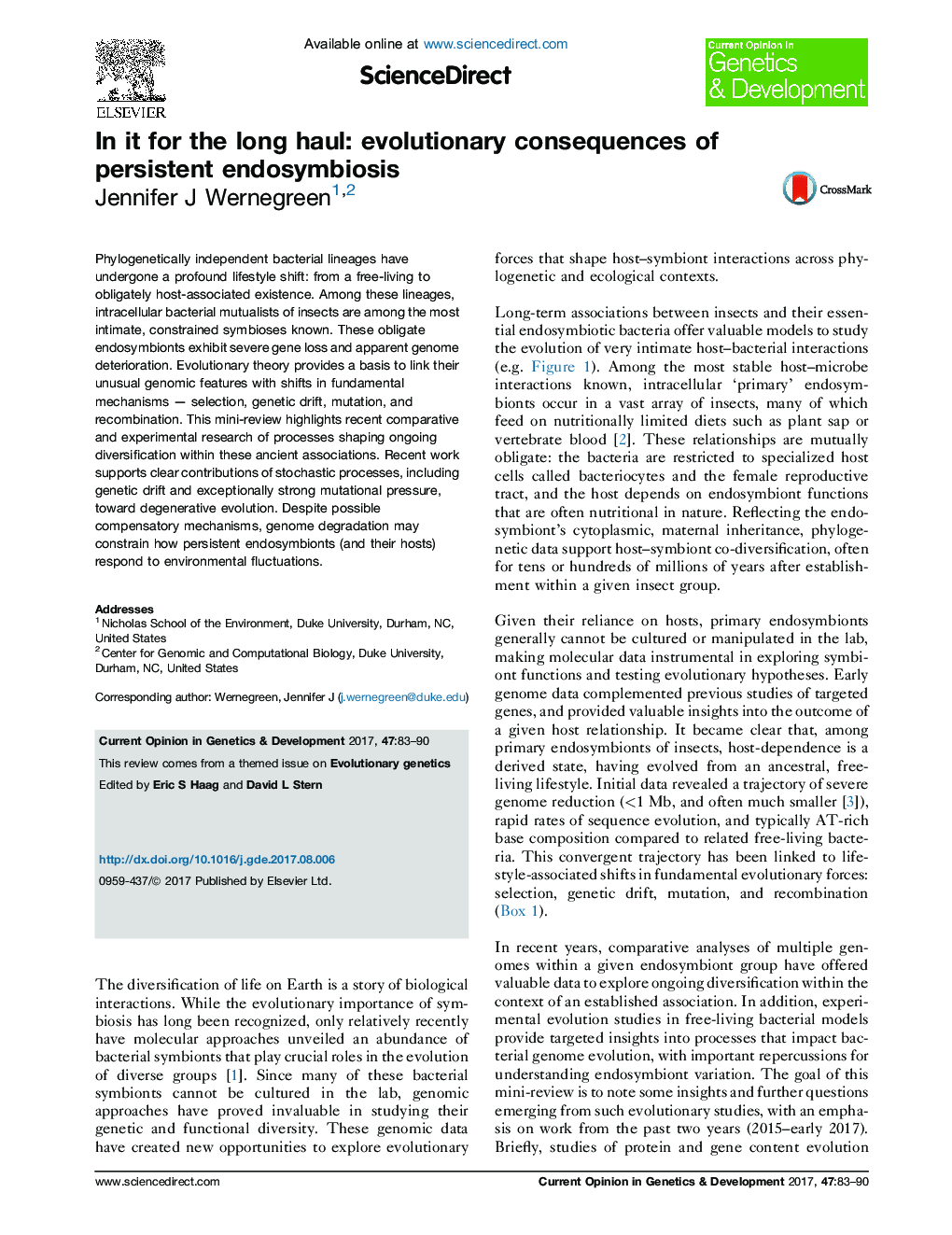| Article ID | Journal | Published Year | Pages | File Type |
|---|---|---|---|---|
| 5585599 | Current Opinion in Genetics & Development | 2017 | 8 Pages |
Abstract
Phylogenetically independent bacterial lineages have undergone a profound lifestyle shift: from a free-living to obligately host-associated existence. Among these lineages, intracellular bacterial mutualists of insects are among the most intimate, constrained symbioses known. These obligate endosymbionts exhibit severe gene loss and apparent genome deterioration. Evolutionary theory provides a basis to link their unusual genomic features with shifts in fundamental mechanisms - selection, genetic drift, mutation, and recombination. This mini-review highlights recent comparative and experimental research of processes shaping ongoing diversification within these ancient associations. Recent work supports clear contributions of stochastic processes, including genetic drift and exceptionally strong mutational pressure, toward degenerative evolution. Despite possible compensatory mechanisms, genome degradation may constrain how persistent endosymbionts (and their hosts) respond to environmental fluctuations.
Related Topics
Life Sciences
Biochemistry, Genetics and Molecular Biology
Developmental Biology
Authors
Jennifer J Wernegreen,
